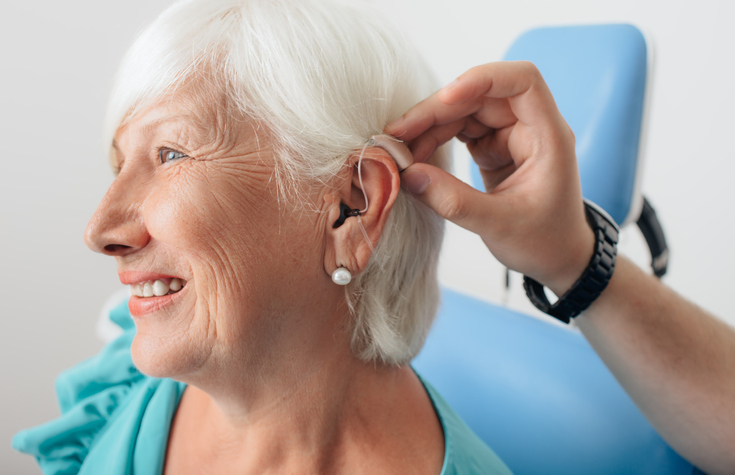
Experts have found a connection between dementia and hearing loss.
When checking in on Mom, you notice the television is blaring, and she’s asking you to repeat what you’ve just said, or even to speak up because she believes you’re talking too quietly. Some amount of hearing loss is fairly typical in older adults, and definitely requires staying on top of through regular hearing screenings. But there is another reason to pay special attention to any hearing issues in seniors: the connection between dementia and hearing loss.
What Is the Connection Between Dementia and Hearing Loss?
Experts believe there are several factors that come into play for a senior with hearing loss and an increased risk for dementia.
- When someone has hearing loss later in life, the brain begins to shrink more rapidly
- Hearing loss may cause seniors to limit their social time with other individuals, resulting in a reduction in brain activity and engagement and intellectual stimulation
- The brain must work harder in order to comprehend audible input, impacting memory and thinking as it strains to fill in the holes of missed conversation
Researchers have already identified that older loved ones who have diminished hearing also suffer from a reduction in cognitive functioning as much as 30–40% faster than individuals without hearing loss. In addition, hearing loss results in a greater risk for depression and falls, as well as other serious health problems.
The next step is further examining the potential link between dementia and hearing loss and to evaluate if seniors who get treatment for their hearing loss can avoid developing dementia. With 48 million people in the U.S. alone struggling with some type of hearing loss, the possible effect of better understanding this connection is significant.
What Is the Best Way to Help a Loved One With Hearing Loss?
If hearing aids are recommended by a physician, encourage a loved one to use them, and to follow through with the doctor’s prescribed regimen of regular checkups and adjustments.
Also, encourage your loved one to remain socially active in spite of hearing loss. Having a companion accompany the person on visits with friends and family or on outings is a fantastic way to help them feel more comfortable and safe. The companion can be a liaison when needed to help the person take part in conversations and not feel left out.
At Anthem Home Care, our home care providers make exceptional companions for people with hearing loss or other health conditions. We can provide accompaniment and transportation to medical appointments as well as fun outings, along with a wide selection of individualized support services at home or on the go.
We also provide specialized care services for those with dementia. Our fully trained and experienced experts know the distinct challenges of the disease and offer creative, compassionate solutions.
Contact us at 361-643-2323 to learn more about how we can help a person you love enjoy life to the fullest!
